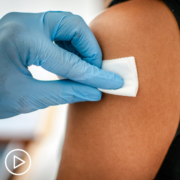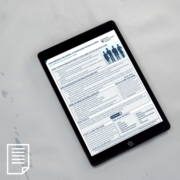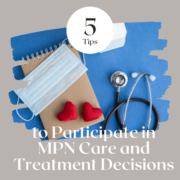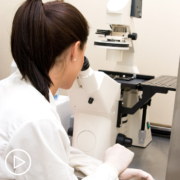COVID-19 Vaccination: What Do Myelofibrosis Patients Need to Know?
COVID-19 Vaccination: What Do Myelofibrosis Patients Need to Know? from Patient Empowerment Network on Vimeo.
Should myelofibrosis patients get the COVID-19 vaccine? Dr. Joseph Scandura discusses the risks and benefits of vaccination.
Dr. Joseph Scandura is Associate Professor of Medicine and Scientific Director of the Silver MPN Center at Weill Cornell Medicine. Learn more about Dr. Scandura, here.
Related Programs

What Are the Considerations When Choosing Myelofibrosis Therapy? |

Expert Perspective: Promising Myelofibrosis Treatment Research |

What’s YOUR Role in Making Myelofibrosis Treatment Decisions? |
Transcript
Katherine Banwell:
Is the COVID-19 vaccine safe for patients with myelofibrosis, and how does the vaccine affect treatment?
Dr. Scandura:
So, I will flip that question around a little bit. I live in New York City.
If I cross the street, the decision to cross the street is potentially a life-or-death decision. And whatever minor decision you’re making, there are always risks and there are always potential benefits. So, I might get home, I might get run over by a cab. And so, I try to mitigate those risks as I can by crossing in certain streets, looking both ways. So, when we talk about vaccine, we also have to talk about the other part of it. What is the risk of not being vaccinated? And so, we know COVID-19 is a severe illness in a subset of patients, we know that if you take all people, about 1 percent of people die from COVID.
If we take all people from the vaccine who have been vaccinated, the number of serious side effects is very, very, very, very small, so, like .000, you know, something percent.
So, very low. It doesn’t mean it’s zero, but it’s very, very low. So, just looking at those numbers, I say for virtually everybody, the risk/benefit is in favor of vaccination. In patients with myelofibrosis, we’ve had the opportunity collectively across the world to gather experience and look at patients with myeloproliferative neoplasms and how they responded to COVID when they were infected with COVID. And worldwide, the toxicity of COVID in patients seems to be quite high. And so, patients with myelofibrosis may be at higher risk from COVID.
I can’t say that they absolutely are because this is imperfect data, but that’s the experience that has been published so far.
We really don’t know anything about the experience of patients to the vaccine. Actually, at my center, we have a myeloproliferative diseases center, and we are trying to collect that information because patients often ask, and I don’t have any results from that. But I think that, all told, there is no reason to expect higher symptoms in patients with myelofibrosis from vaccination. And what we do know is that the risk of not being vaccinated is probably higher than the risk of being vaccinated.










